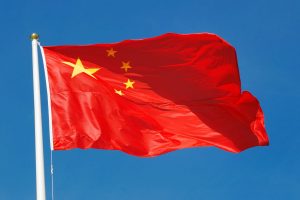Judith M Brown, Emeritus Beit Professor of Commonwealth History, University of Oxford and author of several books on Mahatma Gandhi in her recent article ‘4 questions Gandhi asked of himself, and of all of us’ listed the four following questions.
1. What is religion? 2. How should one live? 3. What is the nature of political identity, particularly the ‘nation’? 4. How should one conduct oneself in the practice of politics? The historian answered the questions underlining the supreme importance of non-violence and Gandhiji’s radical thinking.
Advertisement
The opening lines of the article read: “150 years after Gandhi’s birth there are many Gandhis, in India and worldwide. Diverse people and groups have valued and used some of his ideas and practices, or used his name to grace their own projects. Sometimes he has been deployed in support of causes which he would not have recognised. In a real sense, he has become ‘global property’.” Coming back to the questions let me briefly reflect and reproduce the historian’s notable explanations to those.
On the question of religion Brown writes that for Gandhi, religion was not a clearly packaged and labelled set of beliefs and practices; neither was it a communal or semi-tribal identity. It was a pilgrimage in search of truth, a lifelong searching for God as truth rather than for a divinity which could be described in any simpler way. In response to the question how we should live, she remarked that Gandhi pronounced the powerful aphorism that there is enough in the world for the needs of every man, but not for the greed of every man.
His own lifestyle in the last 25 years of his life in India is well known, and Gandhi was very aware of the advertising effect of his freely chosen poverty and simplicity in food, clothing and possessions. Regarding nature of political identity, particularly the ‘nation’, Brown mentions India was not to be defined by language or creed or even place of birth and heritage. What mattered in making “an Indian” was living in the subcontinent, making it one’s home, and valuing its ancient and complex civilization.
The identity of the nation was urgent in his time because of the imminent departure of the British rulers, and increasingly violent controversies over the relationship between national and religious identity. Finally, on how should one conduct oneself in the practice of politics, the historian writes Gandhi recognised that disagreement and conflict are inevitable in human society and interaction between individuals and groups.
Conversion rather than coercion was his remedy for conflict. Even though non-violent modes of public and political action often seem to have failed in his lifetime and beyond, his life and teaching raise the perennial question of the right ways to behave in the public arena. Now, let me attempt to extrapolate Professor Brown’s standpoint by looking at India’s state of affairs. In other words, putting things into perspective as political landscape in the country has undergone considerable changes. India is marked by many contradictions these days.
The political setting is worrisome as the world’s largest democracy is contaminated by the constraints of politics – from religious hate crimes to politics of tokenism to politics of polarisation to corruption. In a sense, extreme vocal ideologues are gaining ground on both the farright and far-left parties. Incidentally, each and every political party being populated by individuals who have no integrity or moral compass is perhaps the best explanation for the perilous state in which Indian democracy resides today.
All of this makes abundantly clear something that has long been obvious about India’s grimy political mess. Whether it’s unabated lynching/religious hate crimes, let’s remember that the loin-cloth clad “father of the nation” was appreciative of India’s religious and linguistic diversity and was against politics of hate. In Gandhiji’s words ‘”I came to the conclusion long ago . . . that all religions were true and also that all had some error in them, and whilst I hold by my own, I should hold others as dear as Hinduism. So we can only pray, if we are Hindus, not that a Christian should become a Hindu … But our innermost prayer should be a Hindu should be a better Hindu, a Muslim a better Muslim, a Christian a better Christian.”
(Young India: January 19, 1928) Through the decades, political tokenism in our country has become not just accepted but celebrated as leaders indulged in wearing skull cap/Orhna (shawl), delivering speeches laced with political rhetoric, inflammatory advocacy of certain issues, lunch diplomacy (eating meals in Dalit homes) etc. Ironically, country’s political leaders look up to Mahatma Gandhi for inspiration – a man who never wore a skull cap and yet fasted for Muslims’ safety during the riots in Delhi and West Bengal at the time of partition. It shows how tokenism-ridden politics has been quite successful in almost replacing Gandhiji’s philosophy in wooing voters.
We live in a time of paradoxes as some political parties are getting stronger and others weaker. While the strong ones are well-financed and well-organised enough to bring a mass of resources to bear on campaigns and candidates, the latter’s linkages with voters have grown weaker for a variety of reasons – from poor organisational ability to lack of leadership. Incidentally, in an era of intense political polarization, there is hardly any party which is ideologically cohesive and is above political posturing and game-playing. And, it’s precisely for this reason there is a question mark over the centrality of political parties as key institutions of the largest democracy and their increasing inability to perform many of the functions seen as essential to a healthy performance of democracy.
That being said, as Indian politics acquire a darker shade, it’s time to revisit distinctive features of Gandhiji’s political philosophy – put simply, his deep ethical view of politics. According to Spiritualizing Politics section of Mahatma Gandhi’s Leadership – Moral And Spiritual Foundations by Y.P. Anand: Mahatma Gandhi never sought public or political office or title. He was in politics for spiritual reasons. He explained in a speech in London (23.9.1931) “…although to all appearances my mission is political…its roots are – if I may use the term – spiritual….I claim that at least my politics are not divorced from morality, from spirituality, from religion…a man who is trying to discover and follow the will of God cannot possibly leave a single field of life untouched. I found through bitter experience that if I wanted to do social service, I could not possibly leave politics alone”.
Later he said: “The call to lead India did not come to me in the nature of a sudden realization. I prepared for it by fasting and self discipline. My political work grew out of my spiritual preparation”. Let’s talk about another reality that is political corruption. It thrives in our country as the poor and underprivileged are proportionally more than the rich and the privileged. With social media and the smartphone, we can help form an opinion with a few swipes of the thumb, but we can’t make the political leaders agree that corruption funds their politics.
In Gandhiji’s words, “Corruption and hypocrisy ought not to be inevitable products of democracy, as they undoubtedly are today.” India has been a representative democracy but, it’s yet to be a responsive democracy. And to be a responsive democracy, it needs to set right the political system. Our country is in need of a political system that is committed to alter the self-seeking, and shaky polity into a steady, sensible and selfless one. In columnist Steve Chapman’s words – “The bad news is that our democracy does a poor job of giving the people what they want. The good news is that it’s easier to fix a rotten system than a rotten people.”
(The writer is former General Manager, International Centre Goa and former Dy. General Manager, India International Centre, New Delhi)











